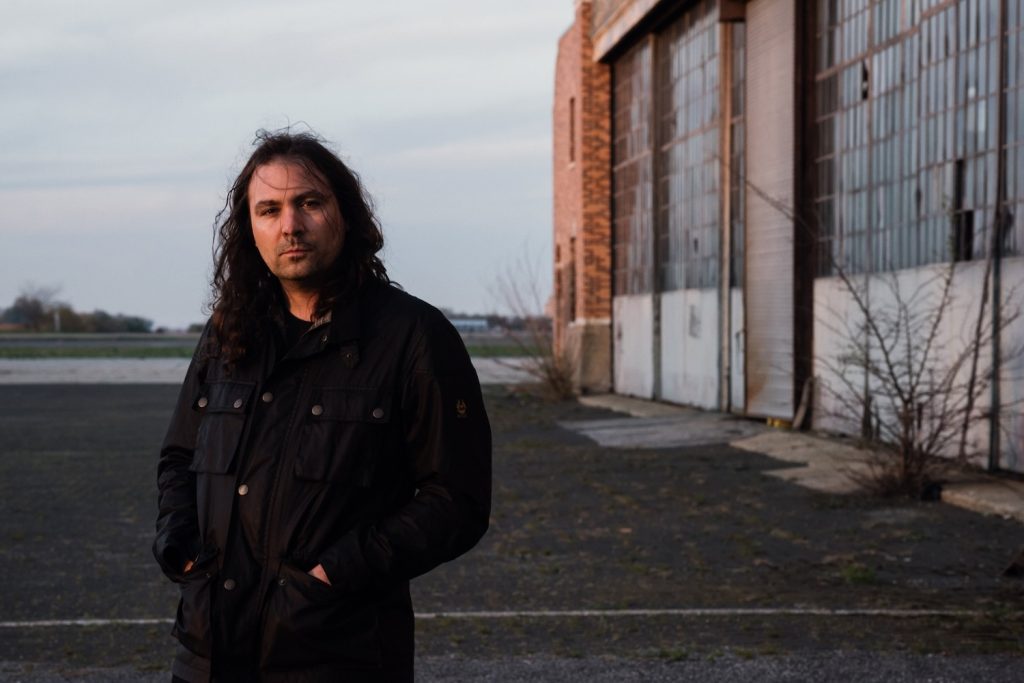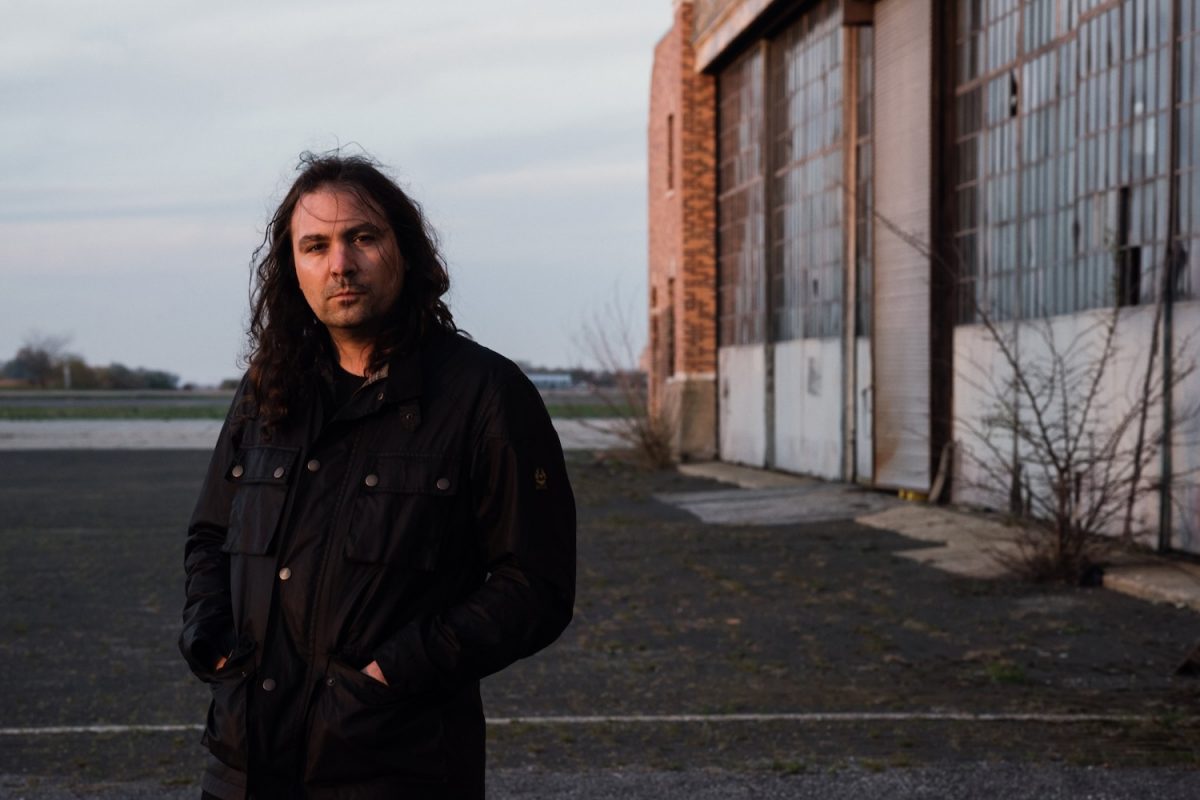
Adam Granduciel’s ever-expanding studio lineup joins together, separately, to make the War On Drugs’ A Deeper Understanding
Personalities define some bands. The unique talents of the three or four or five players, the frictions and the fusions, become inextricable to who and what the band is. That’s a simple truism, whether applied to the Beatles, the Band or the Jam. Remove a piece, and things fall apart.
The War On Drugs is not that kind of band, according to Adam Granduciel. The group, at least on record, is a vision, a sound, a playing field. And A Deeper Understanding (Atlantic), the fourth War On Drugs full-length, expands the vision laid out on Lost In The Dream, the band’s 2015 breakthrough album, the one that took them from clubs to theaters to headlining New York City’s Radio City Music Hall and gave Granduciel and Co. the opportunity to jump to a major label.
“The bands like Sonic Youth, the four or five of those guys in a room—and Kim (Gordon)—it’s a special chemistry; without one of those people, it’s really not the same thing,” says Granduciel. “It’s not something every band has. I’m not saying we don’t have that, but it’s a different kind of music. We make a sound together, we make that noise when we’re on the road playing these songs. But I’m not sure what getting in a room together and making a record we would sound like.”
Although two of A Deeper Understanding’s 10 tracks feature the full complement of the War On Drugs touring band that has been in place for the last three years—bassist Dave Hartley, keyboardist Robbie Bennett, guitarist Anthony LaMarca, saxophonist/keyboardist Jon Natchez and drummer Charlie Hall—they’re supplemented by others. Granduciel and Hartley (who also helms Nightlands) are the only constants on every track on this album (and from the band’s start in 2005). Granduciel has always been a studio obsessive, going back to the days in Philadelphia when he and Kurt Vile played in each other’s bands and worked together on bedroom recordings. Later, for albums such as 2011’s Slave Ambient, his method was to sift through hundreds of hours of home recordings, looking for the best ideas, building layers of sound into dense, sweeping sonic landscapes, bringing in other players as needed.
But Granduciel recorded most of A Deeper Understanding in Los Angeles, where he moved with his girlfriend in early 2016. (He’s since relocated to Brooklyn, although the band has a rehearsal space in Philly.) And although he still anchors all the tracks—the credits sometimes show him playing a one-man-band’s worth of instruments on a song—he prioritizes what individual players bring to the table. Six different drummers, for example, provide the backbeat over the course of the album.
For a band known for its big guitar sound, the focus on drums could seem surprising, especially since War On Drugs songs tend to ride a steady rhythm—whether a leisurely, pulsing one for the 11 minutes of “Thinking Of A Place” (drummer: Hall), an accelerated, emphatic one for “Holding On” (drummer: Patrick Berkery) or a laid-back, thoughtful one on “The Strangest Thing” (drummer: Darren Jessee). On this album, the songs swell and flow. Granduciel’s decision-making process for who plays on what track is part skills-based, part trial-and-error, part serendipity.
“I guess the easy answer is everyone has different strong suits,” says Granduciel. “But I don’t really know until in retrospect what someone’s going to bring to a song. Sometimes it’s just a scheduling thing that could be a blessing in disguise. It’s really just experimenting, just hearing what would the song sound like in this way.”
And although that experimental process works with the keyboards and guitars, it’s especially true with the drums and percussion.
“I guess to me the drums are the most important part of the song,” says Granduciel. “Some people think they’re an afterthought because they’re not a very insane thing. But I spend more time on the drum parts and getting the drums to sound the right way than on any other piece. I feel like I exploit the fact that I don’t really have the track record on record of using the same people. Part of it is me wanting to have my mind blown or wanting to involve people that I’ve known from the road in my music and invite them into my world, invite them into the fold.”
Granduciel loves working in the studio, and he knows he can go down a rabbit hole and have trouble letting go of a song. He’s a tinkerer, susceptible to analysis paralysis. For this album, after an initial month of excited recording, he spent four or five months tweaking ideas. “I was working on it and changing everything and never really breaking through and never really feeling like I was tapping into what I was trying to do,” he says. But then he took the recordings to New York and, working mainly on his own, finished the LP.
“If I were to listen to the record, which I never do, I’d hear the last four months, which was the final blast of inspiration,” he says. “I’d hear that kind of chaos; I’d hear some rough edges, but that’s the stuff I like: not mistakes, but interesting decisions that only I would notice.”
And now, he’s looking forward to hearing what happens when the band takes these songs on the road. “I kind of like that idea of the live band being the vehicle that gets to reinterpret the studio recordings into a new thing,” he says. “It’s a special thing.”
—Steve Klinge







